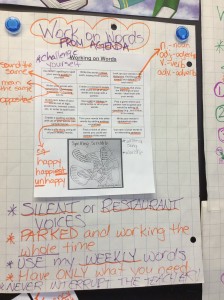Welcome to the homework page!!
Below you will find lots of ideas for what you can do each night for homework. I advise you to keep homework to no more than 40 minutes a night for grades 3 or 4. Reading should be every night, and then you can simply choose other activities to do from the lists below as needed.
Most of what I am marking toward a report card grade MUST be done at school. Homework is really just to practice and improve student skills in specific areas. If you have questions about something, please send them in the agenda.
Thanks, Mrs. McLean 🙂
General Activities:
1. Read each night for at least 20 minutes. Make sure you have “Good Fit” books at home (are interesting to you, you can read and understand them, you know most of the words – no more than 5 errors per page, they fit your purpose for reading – to learn about a topic, to laugh, to enjoy a good story, etc.). Record the title of what you read each night in your agenda (will be checked daily). The focus for talking about your evening reading will be explained on the Curriculum Corner page. Students should be practicing their reading strategies at home according to their needs (make connections, ask questions, predict what will happen, find interesting words, summarize what you’ve read, etc). Students have a chance to sign out a “Good Fit” book from the library (exchanged weekly). Please check out my powerpoint on how to help our students with figuring out words: Shedding the light on reading.
2. Students have a weekly word list written in the “Spelling” section of their agenda. They should be practising to use, spell, write and say these words as part of their regular homework. They should try to find places where their words are used (e.g., in the newspaper, on T.V., on signs they walk or drive by, in their video games, in their nightly reading, etc.) and point them out. By the end of each week, students should be experts on those 10 (or more) words. I may include words in their weekly lists that they have spelled incorrectly in their writing. “WOW” words (interesting words we have posted in our room) may also make it into their weekly lists and students are encouraged to find out what these words mean as well as how to use them in their regular speaking and writing.
3. Students should also use their weekly words to make up sentences, in order to practice sentence writing. Many of them still do not write sentences with a capital ONLY on the first word or on proper nouns (names). They also tend to overuse connecting words (and, then, but, so) and write overly long sentences rather than putting end punctuation in to end their ideas. Each week they should practice these sentence writing skills. Use the acronym “CAPS” to check sentences: Capitals used correctly, ALL makes sense (words spelled correctly and used correctly and no words missing from the sentence), Punctuation used properly and proper Spacing between words.
4. The curriculum corner explains what we are learning for Math as well. Students should continue to practice adding and subtracting 3 or 4 digit numbers and money amounts as the year goes on. Now, have them talk about strategies they use for multiplying (repeated adding, skip counting, decompose numbers into 10s, 5s, 2s to make it easier, etc.). 3s should practice up to 7×7 and 4s to 9×9.
**Students often want to do research at home for our class inquiries. This is fine and could be counted as their nightly reading, but they should be doing this with little-no help. It’s fine to help them find a good website or with some of the reading, but they should be reading and summarizing information in their own words independently. The only exception would be those who are working from IEP expectations (parents know who they are).


